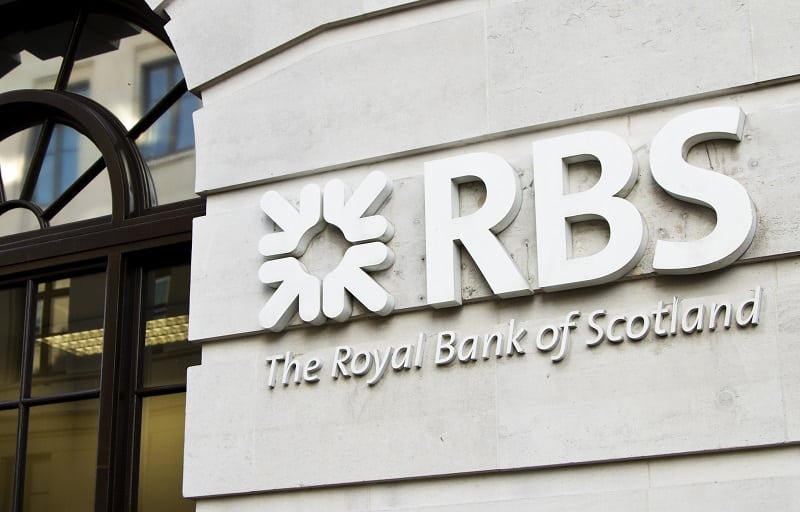The FTSE 100 firm capped off a significant week of annual reports for the big four banks by posting a statutory profit of £752m for the full year, bouncing back from the £7bn loss it posted in 2016.
This is despite the British bank recording an attributable loss of £579m in the fourth quarter.
City analysts were predicting that the bank would post another loss for the full year of £592m, as it was expected to take a financial hit from settling a mortgage mis-selling lawsuit with the US Department of Justice (DoJ).
During the year, lower litigation and conduct costs, which fell from £5.9bn in 2016 to £1.3bn in 2017, boosted total income by 4.3% to £13.1bn and helped cut operating expenses by 36% to £10.4bn.
Friday’s annual results were a “symbolic moment” for the bank, according to Ross McEwan, group chief executive, and “a clear indication of the progress we continue to make in putting the past behind us, while at the same time investing to build a bank which delivers for both customers and shareholders”.
“Our progress over the last few years has given us a stronger platform to compete in a rapidly changing market,” he said.
“And with many of our legacy issues behind us, the investment case for this bank is much clearer and the prospect of returning any excess capital to shareholders is getting closer.”
Despite this notable milestone, shares in RBS were down around 4.5% to 269p by mid-morning, trading at their lowest price in nearly three months.
The bank was at the centre of some negative headlines this week as the Financial Conduct Authority published an unredacted report at the behest of the Treasury Select Committee, confirming inappropriate treatment of its customers in its now defunct global restructuring group (GRG) was more widespread than the bank let on.
Although RBS managed to turn a profit in 2017, Laith Khalaf, senior analyst at Hargreaves Lansdown, emphasised that “this is a stay of execution rather than a pardon” since the bank still faces a multi-billion-dollar penalty from the US DoJ, “which is going to take a big slice out of the bank’s 2018 profits”.
The other “big shadow” looming over RBS is the outstanding large taxpayer stake and until the sale is materially completed, “the market isn’t going to get too excited about RBS”, said Khalaf.
“Indeed, with the price now standing at around half of the government’s breakeven point, the taxpayer’s still going to come out of this nursing a significant loss.”










